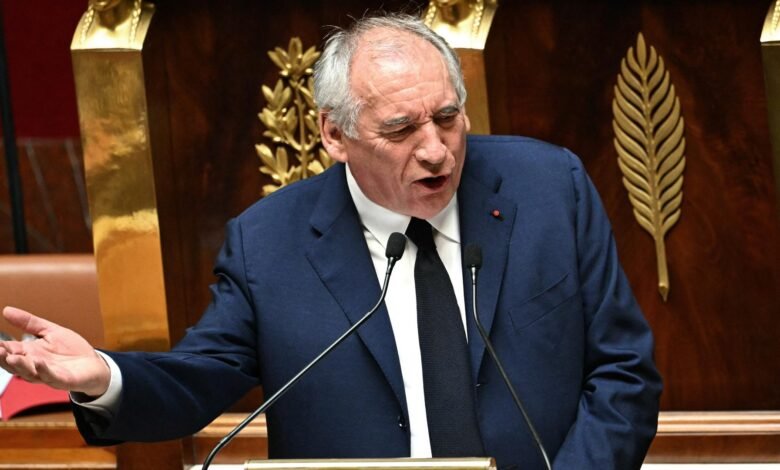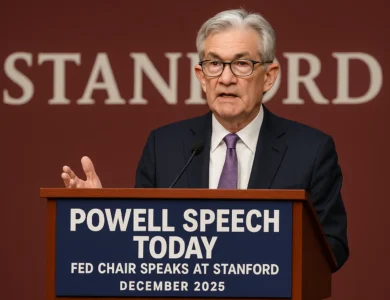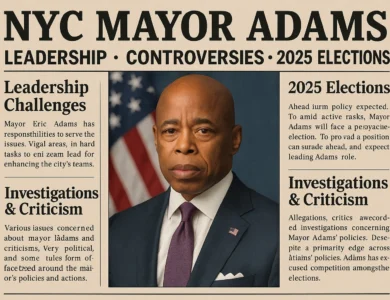
The France government collapse of September 2025 has sent shockwaves through European politics, marking a historic moment in the Fifth Republic’s political landscape. French lawmakers voted to oust Prime Minister François Bayrou Monday, plunging the country into a new political crisis and leaving it without a government at a time of increasing economic strain and geopolitical tensions. This unprecedented political instability in France represents more than just a change in leadership—it signals a fundamental shift in the country’s democratic fabric that could reshape European politics for years to come.
The current French political crisis stems from deep-rooted issues that have been brewing since President Emmanuel Macron’s controversial decision to dissolve the National Assembly in June 2024. What began as a calculated political gamble has transformed into a cascading series of governmental collapses, making France’s political future increasingly uncertain. Understanding this crisis requires examining not only the immediate triggers but also the underlying structural problems that have made French government instability a recurring theme in recent years.
The Immediate Catalyst: Bayrou’s Failed Confidence Vote
Understanding the No-Confidence Motion
The French Parliament confidence vote that toppled Prime Minister François Bayrou’s government represents the first time since 1962 that a French government has fallen after a no-confidence vote. This historic vote wasn’t merely a political maneuver—it was the culmination of months of parliamentary deadlock France that made effective governance nearly impossible.
French lawmakers toppled the government in a no-confidence vote on Monday, plunging Europe’s second-largest economy into renewed political crisis and forcing President Emmanuel Macron to seek his fourth prime minister in just a year. The magnitude of this political upheaval cannot be understated, as it leaves France without stable leadership during a period of significant economic and geopolitical challenges.
The Vote’s Immediate Aftermath
The Bayrou government collapse has created an immediate power vacuum in French politics. President Emmanuel Macron is expected to appoint a new prime minister—the fifth in two years. Bayrou had called for Monday’s vote to build momentum for his legislative agenda, but the strategy backfired spectacularly, resulting in his government’s downfall.
This French ministerial crisis has implications far beyond France’s borders, affecting European Union stability and France’s role in international affairs. The collapse demonstrates the fragility of French coalition politics in an increasingly polarized political landscape.
Historical Context and Root Causes
Macron’s Controversial Dissolution Decision
The root of the latest government collapse was Macron’s stunning decision to dissolve the National Assembly in June 2024, triggering a legislative election that the French leader hoped would strengthen the hand of his pro-European centrist alliance. This decision, widely regarded as a political miscalculation, set in motion the events that led to the current France political turmoil.
After a shellacking for his centrist Ensemble (“Together”) Movement in the June 2024 European Parliament elections, French President Emmanuel Macron decided to call snap legislative elections to try to stabilize the domestic political situation. However, this gamble backfired dramatically, creating more instability rather than resolving existing tensions.
The Fragmented Parliamentary Landscape
The Fifth French Republic entered a period of unprecedented political instability after the 2024 French legislative election organized by President Emmanuel Macron in June 2024, which resulted in a hung parliament mostly split between the left-wing New Popular Front (which held a slim plurality and other competing factions.
This parliamentary fragmentation France has made it extremely difficult for any government to maintain a stable majority. The 2024 elections accentuated a three-way split in the French National Assembly, leading to further instability. The government appointed in September had fallen by the end of the year.
Economic Implications and Fiscal Challenges
Public Spending and Debt Concerns
The French government collapse comes at a particularly challenging time for the country’s economy. The root of this latest government collapse was Macron’s stunning decision to dissolve the National Assembly in June 2024, triggering a legislative election that the French leader hoped would strengthen the centrist position, but economic pressures have made governance increasingly difficult.
The France economic crisis underlying the political instability involves significant fiscal challenges, with public spending debates and massive debt concerns contributing to governmental paralysis. These economic factors have made it nearly impossible for any government to implement necessary but unpopular reforms.
Impact on European Economic Stability
As Europe’s second-largest economy, France’s political uncertainty has broader implications for European Union stability and economic confidence. The ongoing French governmental crisis threatens to undermine investor confidence and complicate EU-wide policy coordination at a critical time for European integration.
Timeline of Events Leading to Collapse
June 2024: The Dissolution Decision
The crisis began with Macron’s decision to dissolve the National Assembly following poor European Parliament election results. This move was intended to clarify the political situation but instead created more confusion and instability.
July-August 2024: Electoral Aftermath
The legislative election resulted in second place with 166 MPs, followed by the RN in third place with 142. The government of Gabriel Attal submitted its resignation on 15 July 2024. This fragmented result made coalition-building extremely difficult.
September 2025: The Final Collapse
The Bayrou no confidence vote marked the culmination of months of political maneuvering and failed attempts to build a stable governing coalition. The vote’s success demonstrated the complete breakdown of French political consensus.
Key Players and Political Dynamics
Emmanuel Macron’s Weakened Position
President Macron’s role in the current French political crisis cannot be understated. His decisions have consistently backfired, leading to unprecedented presidential authority erosion and questions about his ability to govern effectively for the remainder of his term.
François Bayrou’s Brief Tenure
Prime Minister Bayrou’s short-lived government highlighted the challenges facing any leader attempting to navigate France’s fragmented political landscape. His failure to build sufficient parliamentary support reflects the broader coalition building challenges facing French politics.
Opposition Forces and Fragmentation
The French political opposition has successfully leveraged the government’s weakness, but their own fragmentation means they cannot offer a coherent alternative. This creates a dangerous vacuum in French politics where no faction can effectively govern.
European and International Implications
EU Leadership Vacuum
The France government collapse creates a significant leadership vacuum within the European Union at a time when strong French leadership is needed to address various challenges facing the bloc. This European political stability concern extends beyond France’s borders.
International Relations Impact
France’s diplomatic crisis resulting from governmental instability affects its ability to participate effectively in international affairs, from NATO commitments to bilateral relationships with key partners.
What Happens Next: Potential Scenarios
Constitutional Options Available
The French Constitution provides several mechanisms for addressing the current crisis, but each option comes with significant political risks and challenges. The French constitutional crisis elements must be carefully navigated to restore governmental stability.
Possible Coalition Arrangements
Various French political coalitions could potentially emerge, but the ideological divisions between major political forces make sustainable partnerships extremely difficult to achieve.
Electoral Considerations
While new elections remain a possibility, the fragmented nature of French politics makes it unlikely that elections would resolve the underlying issues causing governmental instability.
Long-term Implications for French Democracy
Institutional Challenges
The recurring French government collapse incidents highlight fundamental problems with the current institutional framework that may require constitutional reforms to address effectively.
Democratic Legitimacy Questions
The inability to form stable governments raises serious questions about democratic legitimacy and the effectiveness of France’s political system in addressing citizens’ needs and expectations.
Conclusion
The France government collapse of September 2025 represents a watershed moment in French politics, highlighting the deep structural problems facing the Fifth Republic. The French government, led by Prime Minister Francois Bayrou, has collapsed after losing a vote of no confidence, tipping the eurozone’s second-biggest economy into a political crisis and casting doubt over President Emmanuel Macron’s future.
This French political crisis extends far beyond typical governmental changes, representing a fundamental challenge to France’s political stability and its role in European leadership. The inability to form stable governments, combined with economic pressures and social divisions, suggests that France’s political system may need significant reforms to function effectively in the modern era.
The implications of this governmental instability will likely reverberate throughout Europe and beyond, affecting everything from EU policy-making to international diplomatic relations. As France seeks to rebuild its government yet again, the fundamental questions about political legitimacy, democratic effectiveness, and institutional reform remain unresolved, setting the stage for continued uncertainty in French politics.
Read More: Buffalo Bills All the Latest Team News & Info






